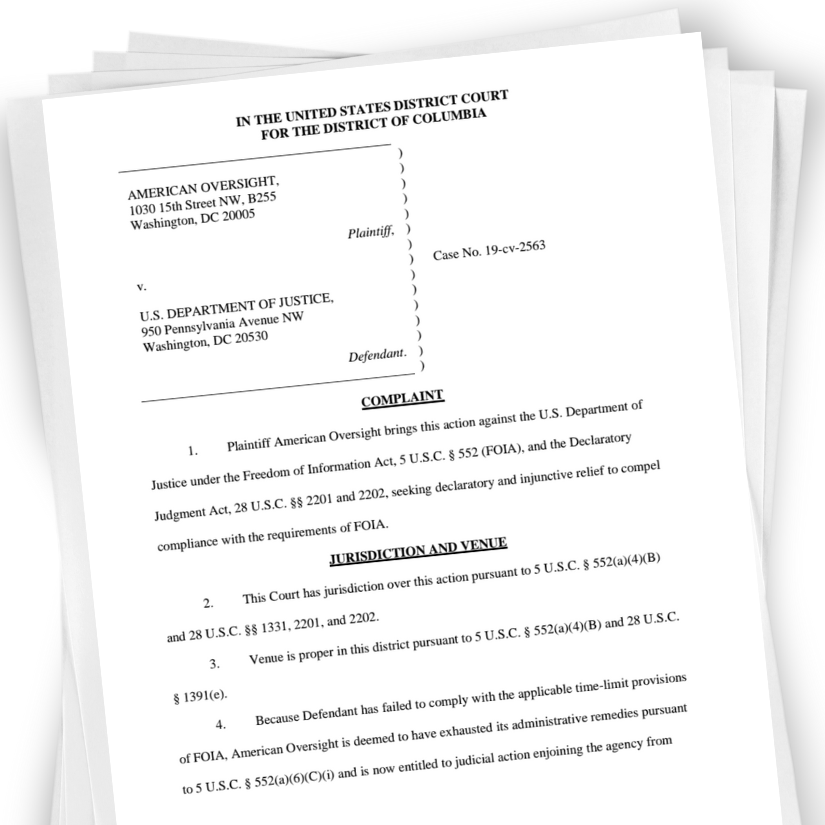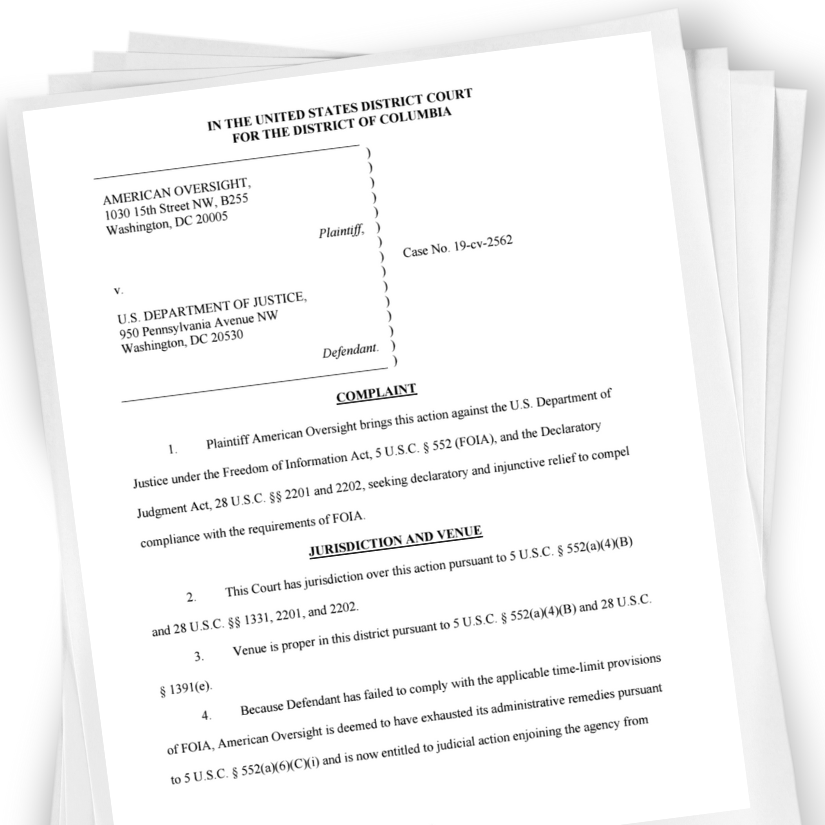
Documents We Obtained Show Barr Met with Prosecutor Examining Mueller Investigation — Immediately After Mueller Investigation Ended
The frequency of the meetings — including during the week Mueller finished his investigation — reveal the importance the attorney general placed on U.S. Attorney John Durham's investigation.

President Donald Trump’s politicization of the Department of Justice began long before this month’s unprecedented interference in the criminal case of former National Security Adviser Michael Flynn. Throughout his presidency, he has sought to transform the agency into a political weapon meant to serve his allies and punish his perceived enemies, and new documents obtained by American Oversight and reported on by CNN provide new details on the extent to which Attorney General William Barr has aided in those efforts.
In March 2019, just a month after Barr took office, Special Counsel Robert Mueller completed his investigation into Russian interference in the 2016 election. Barr has been heavily criticized for having issued a distorted summary and inaccurate statements at the time of the Mueller report’s release, and his appointment shortly thereafter of U.S. Attorney John Durham to look into the origins of the Russia investigation prompted further concern that Barr’s primary goal was serving the president’s political interests.
Justice Department documents obtained in response to Freedom of Information Act requests and litigation by American Oversight show multiple meetings and calls between Barr’s office and Durham, including from around the time of the Mueller report’s release and before the New York Times first reported on Durham’s assignment. “[T]he frequency of their face-to-face meetings during this critical time — while Mueller’s office wrapped up its work — raised questions for several former Justice Department lawyers who learned of Barr’s meetings this week,” wrote CNN’s Katelyn Polantz and Marshall Cohen.
The records also reveal more than two dozen meetings between top Justice Department officials and U.S. Attorney John Huber, who in 2017 had been assigned by then-Attorney General Jeff Sessions to investigate Hillary Clinton. That probe ended earlier this year having discovered nothing of note, but the amount of meetings showed the importance department leadership placed on Huber’s work as well.
On March 25, 2019 — just a day after Barr submitted his letter summarizing the Mueller report to Congress — Durham met with Barr, Barr’s then-Chief of Staff Brian Rabbitt and two career officials from the department’s Justice Management Division. As CNN noted, the presence of officials from JMD, which handles logistical needs, signaled that Barr was discussing the use of Justice Department resources.
At the time, the Justice Department’s inspector general, Michael Horowitz, was also reviewing the FBI’s use of wiretaps in the early stages of the Russia investigation. On April 12, a week before the release of the redacted Mueller report, Horowitz received an email from Seth DuCharme, then Barr’s counselor, regarding a meeting “to explain what John [Durham] and [name redacted] and I are working on.” This email was sent two days after Barr drew criticism for telling Congress that he believed “spying,” by intelligence agencies on the Trump campaign, “did occur.”
Two other meetings occurred in April 2019, shortly after the release of the redacted Mueller report on April 18, and another four over the next two months, including one on May 14, the day after the Times reported on Durham’s appointment. From June through October of that year, Barr, Rabbitt, DuCharme and other officials met or had calls with Durham 13 additional times in the documents we obtained, showing a high level of coordination between Barr’s office and Durham’s investigation. One meeting, on June 26, included Timothy Shea, now the embattled U.S. attorney for the District of Columbia.
Rabbitt, acting Principal Associate Deputy Attorney General Ed O’Callaghan, and other officials also had frequent meetings with Huber between November 2017, when Huber’s investigation began, and March 2019, the last date covered in the records released to American Oversight. The invitation for one Feb. 21, 2019, meeting, referred to as “Clinton Email and Investigation Leak Briefing,” was also sent to then-Deputy Attorney General Rod Rosenstein.
In all, the documents show about 20 meetings between Justice Department leadership and Huber, including three from the week Mueller submitted his report to Barr. Those meetings also appear on Barr’s calendars, though it is unclear whether he was in attendance.
“The Justice Department’s consistent, transparent machinations to favor the president’s associates make it hard to see Bill Barr’s heavy personal involvement in the Durham investigation as anything other than potential political interference to benefit President Trump,” said Austin Evers, American Oversight’s executive director.
“The whole point of tapping an outside prosecutor in a case like this is to avoid political interference from the attorney general and other top officials, but here we see just the opposite: Bill Barr had repeated meetings and calls with John Durham at critical moments linked to the Russia investigation, and that raises serious questions about the independence and credibility of whatever Durham produces.”
